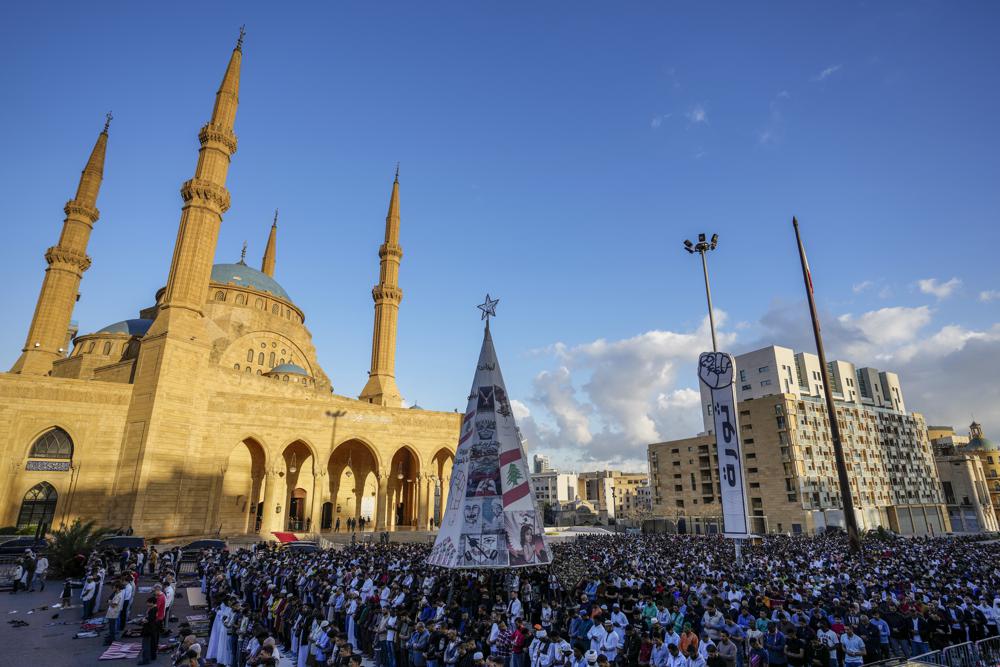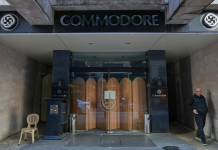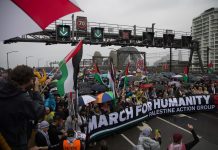BEIRUT (AP) – The holiday of Eid al-Fitr has brought on Friday a day of prayer and joy for Muslims around the world. The festivities were met with tragedy as conflict erupted in Sudan, but were held in hopes of a brighter future in other countries.
After the fasting month of Ramadan, Muslims celebrate Eid al-Fitr with festivals and family visits. The start of the holiday is traditionally based on new moon sightings that vary by geographical location.
In Khartoum, the capital of Sudan, gunshots rang out in the early hours of the holiday. Deadly conflict in the vast African country over the past week has forced many to seek shelter indoors ahead of holidays, despite civilian water and food shortages.
In Jerusalem, thousands of worshipers flocked to Islam’s third holiest site, the Al-Aqsa Mosque. Tensions with Israeli authorities have increased over the past month. The site also contains the holiest site of Judaism.
After the holiday prayers, a jester entertained the children while a woman painted the green, red, black and white Palestinian flag on the little girl’s cheek. Unfolded banners supporting extremist groups.
The streets of the UAE cities of Damascus, Baghdad and Beirut were crowded with believers heading to mosques and cemeteries. Many Muslims visit the graves of their loved ones after the morning prayers on the first day of Eid al-Fitr. Visitors carried bouquets, jugs for plants, and brooms for cleaning gravestones.
“After Eid prayers, we always visit the dead… pray and pay homage. May God have mercy and forgive them on this blessed day,” said Asir Mohammed, Azamiah of Baghdad Spoke at the cemetery.
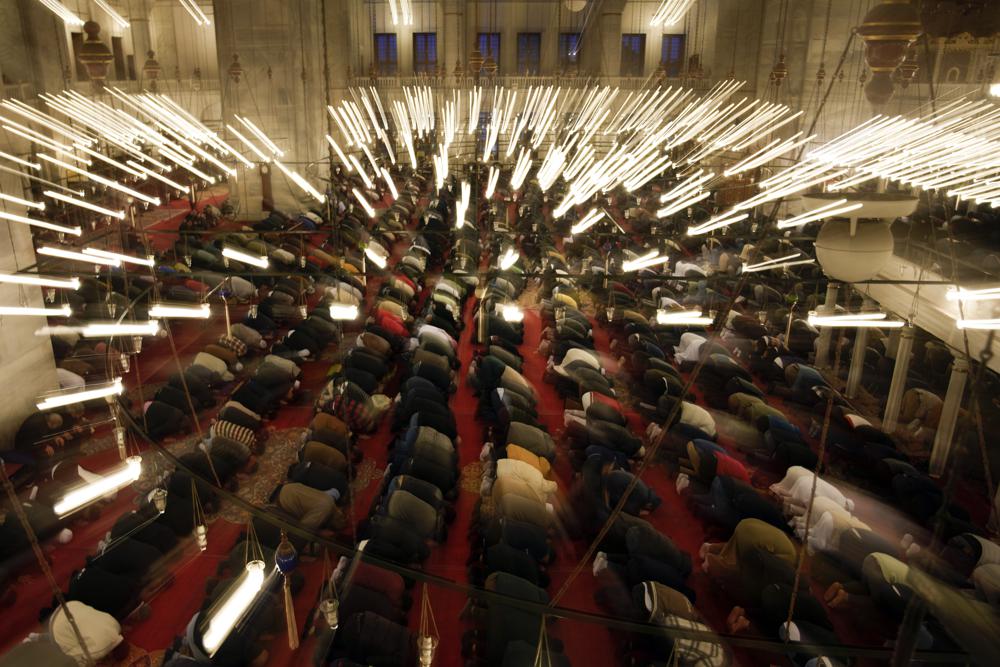
Islamic holidays follow the lunar calendar. However, some countries rely on astronomical calculations rather than physical sightings. This often leads to disagreements between religious authorities in different countries, sometimes even in the same country, about the start date of Eid al-Fitr.
This year, Saudi Arabia and many other Arab countries began their Eid celebrations on Friday, while Iran, Pakistan, Indonesia and others set their first holidays on Saturday.
In Sudan, a holiday has been marred by a week of ferocious fighting between the army and its rival paramilitary forces engaged in a violent struggle for control of the country. Hundreds were killed and thousands wounded in the fighting.
In a video message released early Friday morning, in his first speech since fighting broke out, Sudan’s commander-in-chief, General Abdelfata Burhan, marked the solemn tone of the holiday. The devastation and destruction and the sound of bullets left no room for the happiness everyone deserves in our beloved country,” he said.
The day before, the Sudanese army denied talks with a rival militia known as the Rapid Relief Force, threatening an international negotiation attempt if the two sides continued fighting in central Khartoum and elsewhere in the country. said it would only accept surrender. A sustainable ceasefire. Elsewhere in the region, however, recent reconciliations between arch-rivals Saudi Arabia and Iran have raised hopes for peace.
In Yemen, a Saudi-Iranian rapprochement has raised the prospect of ending the civil war that has escalated into a proxy conflict that has torn the poor country apart since 2014.
Saudi officials and Iran-backed Houthi rebels recently began talks in Yemen’s capital, Sanaa. On the last day of Ramadan, the warring factions exchanged hundreds of prisoners captured during the conflict.
But the moment of hope was marred by a flood of charity events in the rebel-held capital late Wednesday that killed at least 78 people and injured 77 others. This year’s Eid al-Fitr also followed an increase in violence in Israel and Palestine.
In Kabul, Afghanistan, where believers gathered under the watchful eye of Taliban rulers, 35-year-old Abdul Matin said, “In addition to security, I wish I had income and a job. Unfortunately, people face this difficulty.” I can’t get everything I need at a critical time.”
Thousands of people in Turkey and Syria mourned the loss of loved ones in the devastating 7.8-magnitude earthquake that struck the two countries on February 6, killing more than 50,000.
Turkish President Recep Tayyip Erdogan conducted Eid morning prayers on Friday at Hagia Sophia, Istanbul’s sixth-century Byzantine church, which was converted into a mosque three years ago. Erdogan, who faces elections next month amid the economic crisis and the aftermath of the earthquake, handed out chocolates and pastries to journalists outside the mosque.
In Kabul, Afghanistan, where believers gathered under the watchful eye of Taliban rulers, 35-year-old Abdul Matin said, “In addition to security, I wish I had income and a job. Unfortunately, people face this difficulty.” I can’t get everything I need at a critical time.”
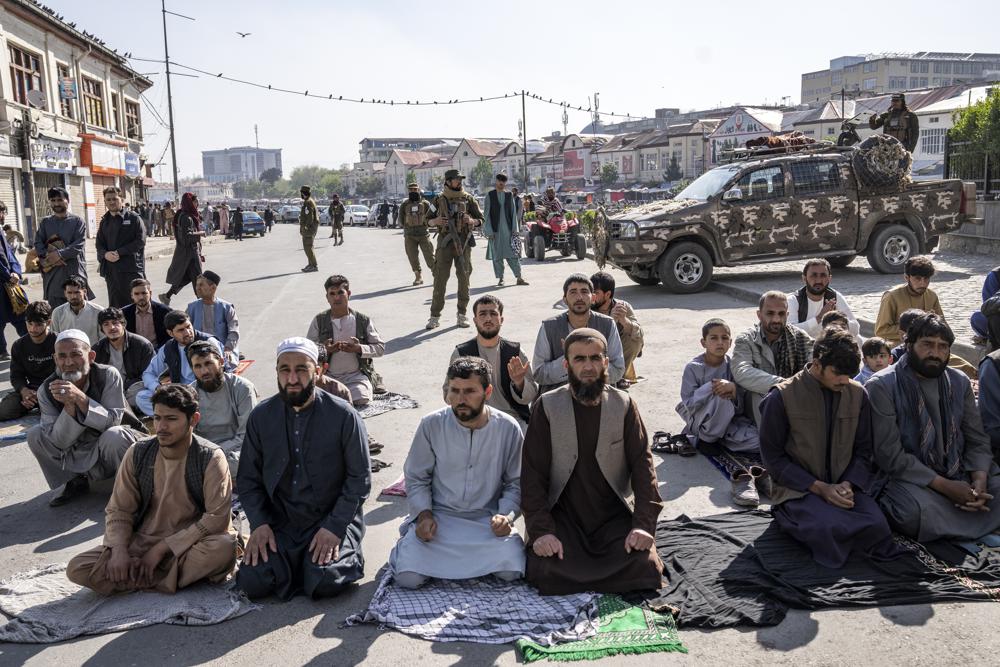 Thousands of people in Turkey and Syria mourned the loss of loved ones in the devastating 7.8-magnitude earthquake that struck the two countries on February 6, killing more than 50,000.
Thousands of people in Turkey and Syria mourned the loss of loved ones in the devastating 7.8-magnitude earthquake that struck the two countries on February 6, killing more than 50,000.
Turkish President Recep Tayyip Erdogan conducted Eid morning prayers on Friday at Hagia Sophia, Istanbul’s sixth-century Byzantine church, which was converted into a mosque three years ago. Erdogan, who faces elections next month amid the economic crisis and the aftermath of the earthquake, handed out chocolates and pastries to journalists outside the mosque.
